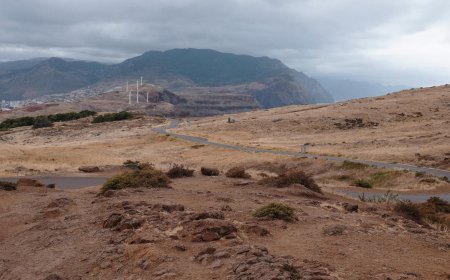Executive Summary
Background and Country Platform Concept
Nigeria ranks as the third-largest recipient of climate finance in Africa—after Egypt and Morocco—yet its tracked inflow of $1.9 billion remains disproportionately low relative to the size of its economy and its vast potential for low-carbon development (Stout & Meattle, 2023). This exposes a substantial annual financing gap of $15.8 billion, far below the estimated $17.7 billion required each year to implement its conditional Nationally Determined Contributions (NDCs). While the Nigerian Government has made notable strides in mobilizing climate finance, persistent challenges—including policy incoherence, poor planning, misalignment of stakeholder interests, and asymmetrical engagements with development partners—continue to hinder progress. To overcome these systemic barriers and scale up investment, there is an urgent need for a Country Platform for Climate Action (CPCA) that aligns and coordinates the efforts of government, the private sector, civil society, and international funders. Such a platform can serve as a unified framework to enhance transparency, build investor confidence, and accelerate the flow of climate finance. The experiences of the Just Energy Transition Partnerships (JETPs)—which represent a leading example of CPCA—in South Africa, Indonesia, Vietnam, and Senegal offer important lessons on how Nigeria can adopt a more strategic, inclusive, and coordinated approach to achieve its energy transition and climate goals.
JETPs stand out for their prioritization of coal phase-out in developing countries, mobilization of private sector investments, and their country-led implementation model that ensures alignment with national contexts. Their scale of financing—$46.5 billion committed to just four countries—surpasses that of some traditional climate funds, highlighting the potential of well-structured partnerships. However, early experiences reveal critical limitations, including inequitable distribution of benefits, inadequate local engagement, overreliance on market-based mechanisms, and narrow focus on energy systems to the exclusion of adaptation, nature-based solutions, and job creation. These shortcomings suggest the need for a more expansive and inclusive platform. For Nigeria, a comprehensive CPCA would incorporate the strengths of JETPs while broadening the scope to include resilience building, industrial growth, and social equity. It should also engage a wider range of international development partners—including those from BRICS+—to foster co-ownership, align global support with national priorities, and catalyze both domestic and international finance. By learning from and improving upon the JETP model, Nigeria’s CPCA can serve as a transformative vehicle for unlocking scaled, just, and sustained climate action.
Country Platform Experiences: Lessons from Emerging Models
As a recommendation for the proposed Nigeria Country Platform, it is instructive to examine the experiences of other nations that have implemented similar mechanisms to advance their climate goals. The following case studies explore the unique approaches and outcomes observed in South Africa, Indonesia, Vietnam, Senegal, and Egypt, offering valuable insights and lessons for the development of Nigeria’s own platform. The table below presents a comparative summary of the four case studies, highlighting key features, outcomes, and lessons learned relevant to Nigeria’s proposed CPCA.
| South Africa | Indonesia | Vietnam | Senegal | |
|---|---|---|---|---|
| Energy Mix (kWh) | 69% coal, 14% crude oil, 11% renewables, 3% nuclear, 3% natural gas | 29.3% coal, 29.6% oil, 14.6% gas, 14.5% oil, 14.3 biofuels, 9% hydro, 11.5% wind/solar | 26% coal, 38% hydro, 31% gas | 55% hydro, 28% oil, biomass/fuels, 10% solar, 3% others |
| Regime Type | SOE | SOE | SOE | SOE |
| Per capita GDP | 5742 | 3892 | 3552 | 6794 |
| Per capita kWh | 3487 | 780 | 1469 | 2375 |
| Transition policy framework | Just & Equitable Transition Investment | Just Energy Transition Plan | JETP Agreement’s three main objectives (1) reduce emissions, (2) phase out coal, (3) increase renewables & sustainable energy infrastructure | National Renewable Energy Action Plan (which incorporates gas as a transition fuel) |
| Transition institutional framework | Presidential Climate Commission (PCC), Process & Stakeholder Management by JETP Secretariat, Climate Finance Task Team negotiated directly with IPG | Secretariat (housed in the Ministry of Energy & Mineral Resources) with IPG established to manage process & stakeholder consultation, planning and project development; Secretariat supported by ADB | Inception Phase JETP Resource Mobilization Plan due in November 2023 | US$2.5 billion over three years, Presidential Commission led by the Minister of Energy, with the Minister of Finance, the Ministry of Environment, the Ministry of Planning, and the Senegalese Agency for Renewable Energies (SER), BGOs, SOE Electricity, Chamber of Commerce |
| Legal Instrument | Bill introduced in Parliament Other instruments* | No | Inception Phase – JETP agreement with IPG + GFANZ | JETP Agreement announced 28 June 2023 |
| Implementing Agent | PCC | NoMER | Not determined | Senegalese Renewable Energy Agency |
| International Partners Funding | IPG $8.5bn committed – $98bn requested | PGII – IPG & GFANZ $20bn committed | PGIL-IPG & GFANZ $15bn committed | France, Germany, the EU, the UK and Canada committed $2.7bn |
What might a Country Platform look like for Nigeria
Nigeria’s approach to developing a country platform for energy transition focuses on integrating climate action with economic growth, energy security, and social equity. While the current Nigerian government emphasizes renewable energy, it continues to support oil and gas, complicating the transition due to fiscal challenges and fossil fuel dependency. The fragmented climate policy landscape, which includes frameworks like the Climate Change Act and Energy Transition Plan, highlights the need for a cohesive national platform to effectively drive climate action. Geopolitically, Nigeria must balance relationships with traditional allies like the European Union and the United States and emerging powers such as China and India to attract global support while advancing domestic goals.
To achieve its ambitious target of $1.9 trillion for energy transition by 2060, Nigeria needs to secure international climate finance and enhance local project development capacity. Establishing a carbon market through initiatives like the African Carbon Markets Initiative (ACMI) is vital for engaging the private sector. Addressing Nigeria’s power crisis requires a coordinated platform that promotes both centralized and decentralized energy solutions while tackling sector-specific challenges across agriculture, transportation, and industry. A well-structured country platform would align stakeholders, harmonize policies, attract climate finance, and provide essential technical assistance, supporting a more efficient, sustainable, and inclusive transition.
About the authors
Lai Yahaya
Lai Yakubu Yahaya is a lawyer and political economist. He advises the Chief of Staff to President Bola Ahmed Tinubu and was Senior Special Assistant to President Muhammadu Buhari and advised Raila Odinga. A Yale World Fellow and Archbishop Tutu Leadership Fellow, he works on economic reform and infrastructure in Africa. He is also a visiting fellow at APRI.
Olumide Onitekun
Olumide Onitekun is a Research and Policy Officer at the APRI's Climate Change program, contributing to multiple initiatives, including accelerating Nigeria’s energy transition through a country platform, methane mitigation and reduction in the oil and gas sector, and mainstreaming climate actions into Nigeria’s development plan.

